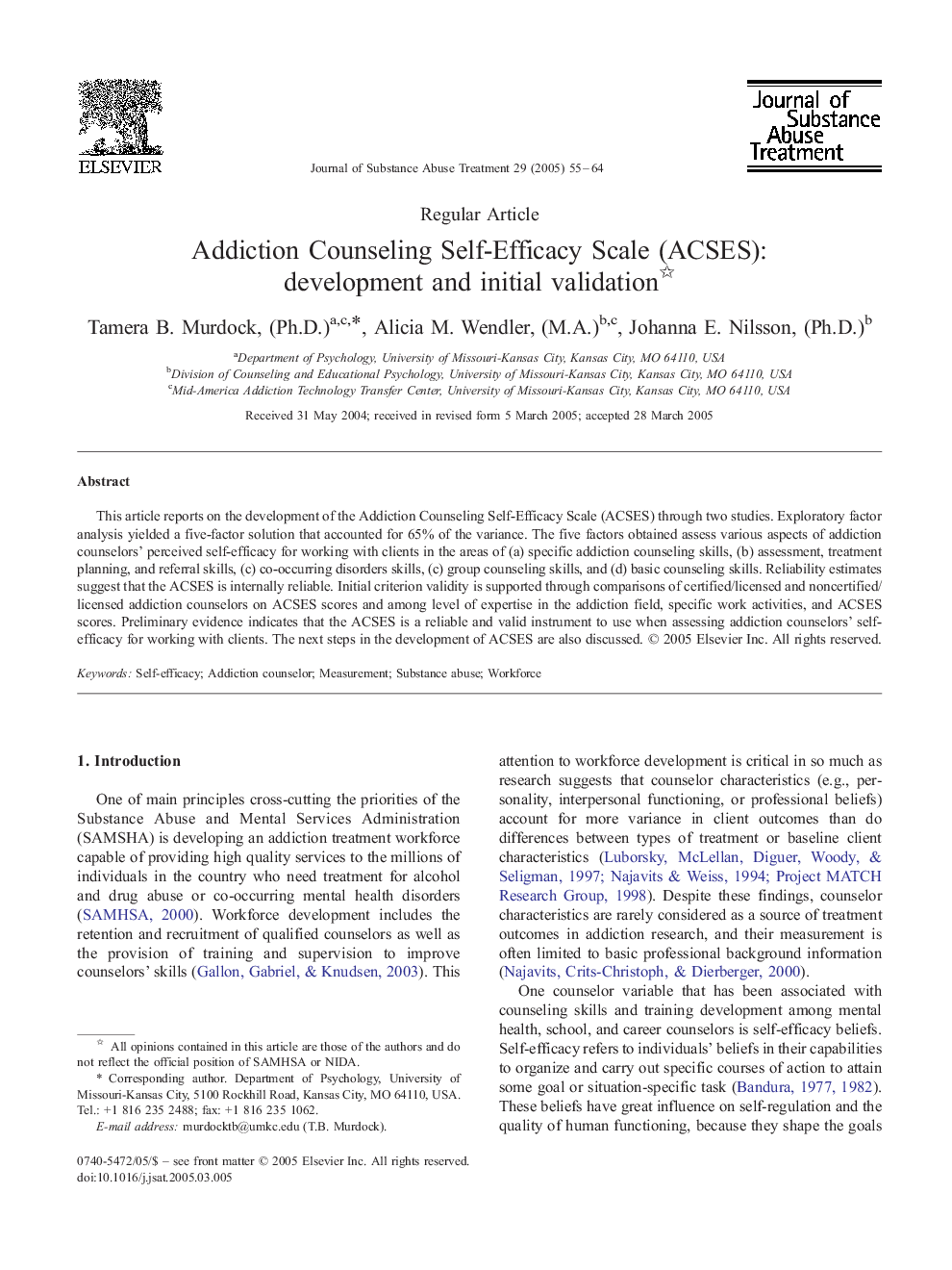| Article ID | Journal | Published Year | Pages | File Type |
|---|---|---|---|---|
| 10303134 | Journal of Substance Abuse Treatment | 2005 | 10 Pages |
Abstract
This article reports on the development of the Addiction Counseling Self-Efficacy Scale (ACSES) through two studies. Exploratory factor analysis yielded a five-factor solution that accounted for 65% of the variance. The five factors obtained assess various aspects of addiction counselors' perceived self-efficacy for working with clients in the areas of (a) specific addiction counseling skills, (b) assessment, treatment planning, and referral skills, (c) co-occurring disorders skills, (c) group counseling skills, and (d) basic counseling skills. Reliability estimates suggest that the ACSES is internally reliable. Initial criterion validity is supported through comparisons of certified/licensed and noncertified/licensed addiction counselors on ACSES scores and among level of expertise in the addiction field, specific work activities, and ACSES scores. Preliminary evidence indicates that the ACSES is a reliable and valid instrument to use when assessing addiction counselors' self-efficacy for working with clients. The next steps in the development of ACSES are also discussed.
Related Topics
Life Sciences
Neuroscience
Biological Psychiatry
Authors
Tamera B. Ph.D., Alicia M. M.A., Johanna E. Ph.D.,
